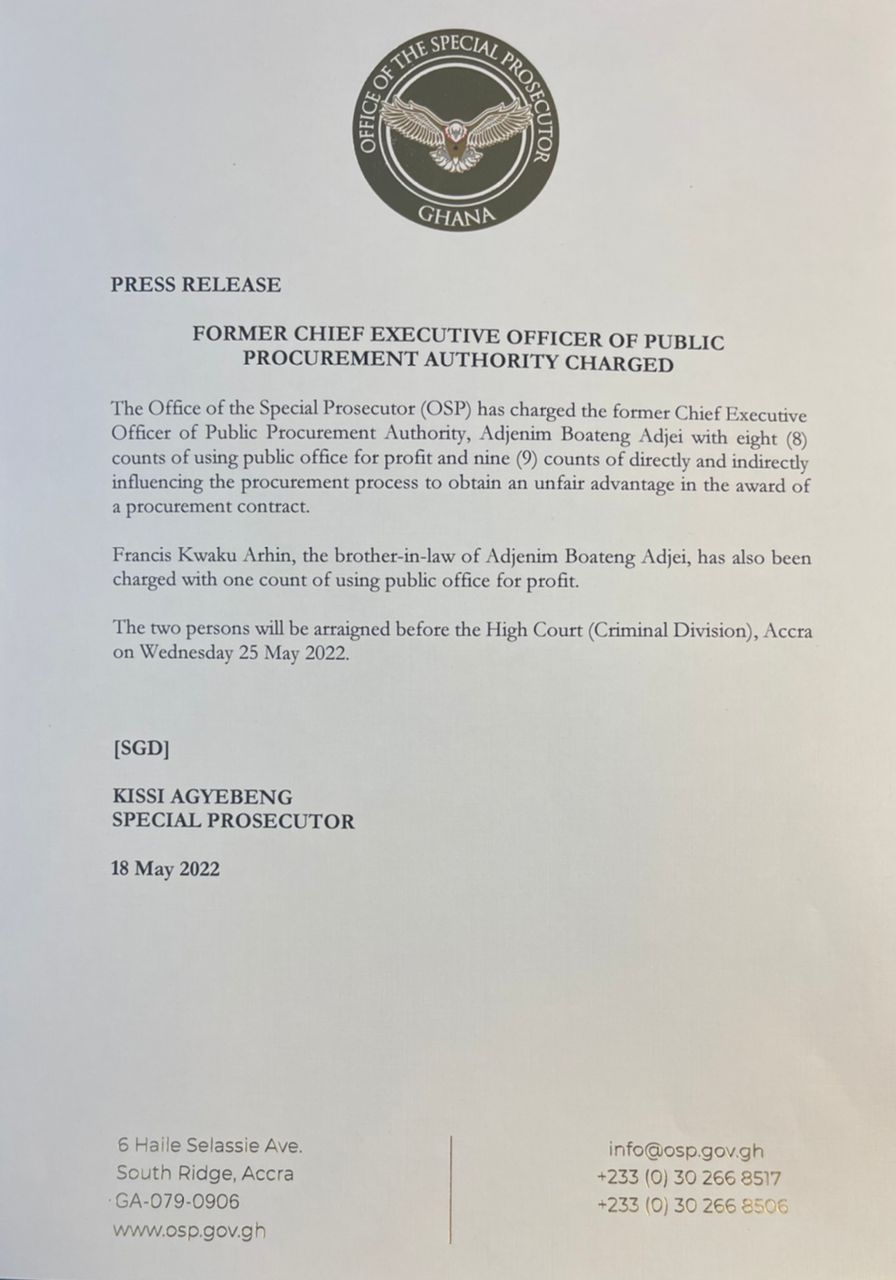The Special Prosecutor has charged the former Chief Executive Officer of the Public Procurement Authority, Adjenim Boateng Adjei, with corruption offences in the ‘Contracts for Sale’ scandal.
He was charged with eight counts of using public office for profit and nine counts of directly and indirectly influencing the procurement process to obtain an unfair advantage in the award of a procurement contract.
Mr. Adjei was charged alongside his brother-in-law, Francis Kwaku Arhin, who is facing a charge of using public office for profit.
They will be arraigned before a high court on May 25, 2022.
These charges are the culmination of investigative work by journalist Manasseh Azure Awuni.
In his investigation, a company known as Talent Discovery Limited (TDL), owned by Mr. Adjei, was getting government contracts through restricted tendering and selling those contracts to others for profit.
The contracts were public works contracts awarded by the Ministry of Works and Housing, Ministry of Education, Ministry of Special Development Initiatives, Ministry of Inner-City & Zongo Development and the Ghana Ports and Harbour Authority.
According to the facts of the case, Mr. Adjei once altered the decision of the PPA Board in favour of Talent Discovery Limited.
The Office of the Special Prosecutor probed the corruption concerns that emerged, while the Commission on Human Rights and Administrative Justice looked into conflict of interest aspects of the case.

After investigating Mr. Adjei, CHRAJ found him guilty of conflict of interest, saying the money accrued in Mr. his accounts since assuming office in 2017 stood at GHS 14.8 million from his four Dollar and Euro accounts held at two banks.
According to CHRAJ, Mr. Adjei could not satisfactorily explain the source of the large volumes of excess wealth that passed through his bank accounts between March 2017 and August 2019.
The Special Prosecutor also noted that Mr. Adjei “amassed fantastic funds in his bank accounts within a very short time.”
“The First and Second Accused perversely benefited pecuniarily through the use of public office for profit and influencing the public procurement process to obtain unfair advantage.”










































